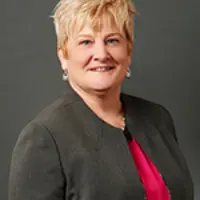About Devereux Advanced Behavioral Health – Children’s Intellectual and Developmental Disabilities Services
Devereux Advanced Behavioral Health on Boot Road in West Chester, Pennsylvania helps children and youth who have challenges whether they are intellectual, developmental, psychological, or behavioral. They have multiple levels of care for various diagnoses and situations. This includes a center for autism research, day academies, acute inpatient care and community services.
Specific residential programs are available for young adults, youth, and children who are on the autism spectrum. There is another program for those with intellectual and developmental disabilities and cognitive differences. The third residential care program for youth is for behavioral and emotional health challenges, including substance abuse and addictions. This could be an addiction to street drugs, alcohol, prescription drugs, or something such as pornography, social media, or gambling.
The Support a Child Needs
Devereux offers the support care level a child or adolescent needs when they need it. For crisis and acute care situations there is an inpatient short term mental and behavioral health unit. For those requiring more support for a longer period of time, there is a residential treatment program.
There are private day schools, day treatment programs, community based mental health services for when a young one leaves intensive treatment, and outpatient services for continued support.
Therapy for Mind, Body, and Spirit
The core curriculum for residential and day treatment educational programs include physical education and health and wellness. It also has the school basics such as science, social studies, English and language arts as well as math and technology.
Programs also include leisure and recreation activities. They have art, music and animal therapy and play therapy which all are integrated into a treatment program based on Positive Behavioral Interventions and Supports. All programming is trauma-informed and evidence-based.
Latest Reviews
Rehab Score
Location
Other Forms of Payment
Medicaid is a state based program that helps lower-income individuals and families pay for healthcare. Medicaid covers addiction treatment so those enrolled can use their coverage to pay for rehab. When a program accepts Medicaid the client often pays very little or nothing out of their own pocket.
Private insurance refers to any kind of healthcare coverage that isn't from the state or federal government. This includes individual and family plans offered by an employer or purchased from the Insurance Marketplace. Every plan will have different requirements and out of pocket costs so be sure to get the full details before you start treatment.
Self-pay involves paying for treatment out of your own pocket. You can use savings or credit, get a personal loan, or receive help from family and friends to fund your treatment. If you don't have insurance or your insurance plan doesn't cover a specific program, self-pay can help ensure you still get the care you need.
Financial aid can take many forms. Centers may have grants or scholarships available to clients who meet eligibility requirements. Programs that receive SAMHSA grants may have financial aid available for those who need treatment as well. Grants and scholarships can help you pai for treatment without having to repay.
Addiction Treatments
Levels of Care
Devereux Pennsylvania provides a rich, evolving continuum of 24 hour, out-of-home residential services for children and youth with intellectual and developmental disabilities. A team of caring, talented staff is dedicated to helping each indvidual achieve social, emotional, behavioral and educational goals and return to their home communities. Under the umbrella of CIDDS, there are four different residential programs, each with their own focus, customizing the entire treatment environment to serve the unique needs of children and adolescents served. Common throughout all the residential programs, however, is the evidence based practice of Program-Wide Positive Behavior Intervention and Support (PW-PBIS), which infuses all aspects of care.
Treatments
The goal of treatment for alcoholism is abstinence. Those with poor social support, poor motivation, or psychiatric disorders tend to relapse within a few years of treatment. For these people, success is measured by longer periods of abstinence, reduced use of alcohol, better health, and improved social functioning. Recovery and Maintenance are usually based on 12 step programs and AA meetings.
Drug rehab in Pennsylvania is devoted to the treatment of addiction. Levels of care, treatment methods, and settings differ, but the aim of each program is to end drug dependency and empower participants to achieve long-term recovery.
Many of those suffering from addiction also suffer from mental or emotional illnesses like schizophrenia, bipolar disorder, depression, or anxiety disorders. Rehab and other substance abuse facilities treating those with a dual diagnosis or co-occurring disorder administer psychiatric treatment to address the person's mental health issue in addition to drug and alcohol rehabilitation.
Since 1998, Devereux has been providing BHRS Services to children and adolescents between the ages of two and 21 with intellectual and developmental disabilities, with the goal of treating the individual in his or her home, school and community. BHRS is a process that strives to create positive outcomes – such as problem solving and coping skills - for the child through a structured and individualized process that is family-centered and culturally competent.
Opioid rehabs specialize in supporting those recovering from opioid addiction. They treat those suffering from addiction to illegal opioids like heroin, as well as prescription drugs like oxycodone. These centers typically combine both physical as well as mental and emotional support to help stop addiction. Physical support often includes medical detox and subsequent medical support (including medication), and mental support includes in-depth therapy to address the underlying causes of addiction.
Programs
Young adulthood can be an exciting, yet difficult, time of transition. Individuals in their late teens to mid-20s face unique stressors related to school, jobs, families, and social circles, which can lead to a rise in substance use. Rehab centers with dedicated young adult programs will include activities and amenities that cater to this age group, with an emphasis on specialized counseling, peer socialization, and ongoing aftercare.
Clinical Services
Animal therapy (aka pet therapy or animal-assisted therapy) can be very healing, as it allows patients to bond with animals, who give unconditional love. This is particularly useful for those who suffered trauma by the hands of people, who may be able to trust and form closer attachments to animals than humans at certain stages of rehabilitation.
Cognitive Behavioral Therapy (CBT) is a therapy modality that focuses on the relationship between one's thoughts, feelings, and behaviors. It is used to establish and allow for healthy responses to thoughts and feelings (instead of unhealthy responses, like using drugs or alcohol). CBT has been proven effective for recovering addicts of all kinds, and is used to strengthen a patient's own self-awareness and ability to self-regulate. CBT allows individuals to monitor their own emotional state, become more adept at communicating with others, and manage stress without needing to engage in substance abuse.
Creativity is inherently healing, and can help those in recovery express thoughts or feelings they might not otherwise be able to. Creative arts therapy can include music, poetry/writing, painting, sculpting, dance, theater, sandplay, and more. Unlike traditional art, the final product matters far less than the experience of creation and expression itself.
Dialectical Behavior Therapy (DBT) is a modified form of Cognitive Behavioral Therapy (CBT), a treatment designed to help people understand and ultimately affect the relationship between their thoughts, feelings, and behaviors. DBT is often used for individuals who struggle with self-harm behaviors, such as self-mutilation (cutting) and suicidal thoughts, urges, or attempts. It has been proven clinically effective for those who struggle with out-of-control emotions and mental health illnesses like Borderline Personality Disorder.
Experiential therapy is a form of therapy in which clients are encouraged to surface and work through subconscious issues by engaging in real-time experiences. Experiential therapy departs from traditional talk therapy by involving the body, and having clients engage in activities, movements, and physical and emotional expression. This can involve role-play or using props (which can include other people). Experiential therapy can help people process trauma, memories, and emotion quickly, deeply, and in a lasting fashion, leading to substantial and impactful healing.
Research clearly demonstrates that recovery is far more successful and sustainable when loved ones like family members participate in rehab and substance abuse treatment. Genetic factors may be at play when it comes to drug and alcohol addiction, as well as mental health issues. Family dynamics often play a critical role in addiction triggers, and if properly educated, family members can be a strong source of support when it comes to rehabilitation.
Group therapy is any therapeutic work that happens in a group (not one-on-one). There are a number of different group therapy modalities, including support groups, experiential therapy, psycho-education, and more. Group therapy involves treatment as well as processing interaction between group members.
In individual therapy, a patient meets one-on-one with a trained psychologist or counselor. Therapy is a pivotal part of effective substance abuse treatment, as it often covers root causes of addiction, including challenges faced by the patient in their social, family, and work/school life.
Every effort is made to insure that all of CIDDS’ residential homes and cottages reflect a warm, homelike setting. This approach not only provides a safe, dignified environment for the children but also provides opportunities for experiential learning, where the children can practice life skills needed as an adult, from cooking and cleaning to positive communication, conflict resolution, cooperation and compromise.
Nutrition therapy, aka medical nutrition therapy (MNT), is a way of treating physical, emotional, and medical conditions through diet. Specific dietary plans are designed by professional nutritionists or registered dietitians, and patients follow them in order to positively affect their physical and mental health.
Trauma therapy addresses traumatic incidents from a client's past that are likely affecting their present-day experience. Trauma is often one of the primary triggers and potential causes of addiction, and can stem from child sexual abuse, domestic violence, having a parent with a mental illness, losing one or both parents at a young age, teenage or adult sexual assault, or any number of other factors. The purpose of trauma therapy is to allow a patient to process trauma and move through and past it, with the help of trained and compassionate mental health professionals.
Amenities
-
Residential Setting
-
Private Setting
Staff & Accreditations
Staff

Melanie Beidler, M.S.
VP of Operations Children’s Services

Stephen Bruce, M.Ed., BCBA
VP of Operations Adult Services

Patricia Hillis-Clark, Psy.D.
Executive Director

Megan Robinson Joy, Ph.D, BCBA
Director of Autism Clinical Support Services
Accreditations

The Joint Commission, formerly known as JCAHO, is a nonprofit organization that accredits rehab organizations and programs. Founded in 1951, the Joint Commision's mission is to improve the quality of patient care and demonstrating the quality of patient care.
Joint Commission Accreditation: Yes
Contact Information
390 Boot Road
West Chester, PA 19380
